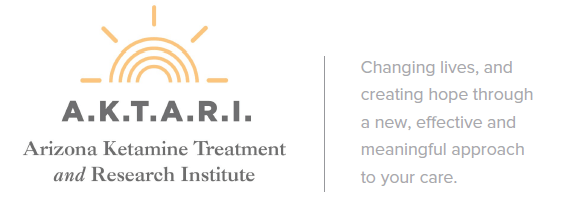Chronic Anxiety, Panic Disorder, and Agoraphobia
Intermittent low levels of fear or anxiety is a natural part of life, it keeps us mentally sharp and aware of potential threats. However, chronic and pervasive anxiety can overshadow life, and the effects of persistent Anxiety, Panic Disorder, or Agoraphobia can be far reaching and debilitating. Anxiety disorders affect physical health, professional health, and the ability to interact socially.
The National Institute of Mental Health estimates that 18 percent of adults in the United States suffer from a prolonged anxiety-based disorder at any given time. And Anxiety is often a symptom of, or co-exists with, a variety of other mental disorders, including depression and bipolar.
Medically-supervised Ketamine treatment has the potential to help alleviate Anxiety disorders, such as chronic anxiety, panic disorder, agoraphobia and Generalized Anxiety Disorder. In a recent report, a woman suffering from all these symptoms had an incidental Ketamine infusion to relieve pain from a back injury. To her surprise, she experienced dramatic relief of her psychiatric symptoms for over ten weeks. During this time, she returned to normal life activities and remained symptom-free after a single dose of Ketamine.
Evidence like this, while anecdotal, is not isolated. There are many reports of anxiety disorders being managed successfully with repeated low-dose Ketamine infusions. Research trials are underway to further explore the use of Ketamine infusion therapy in the treatment of Anxiety disorders. And there is additional reason to anticipate that treatment success seen in Depression and other psychiatric disorders will carry over— due to the similarities in physiology of the brain structure seen with patients across a broad range of psychiatric conditions.
A research team based at Stanford University conducted a survey of 193 peer-reviewed brain-imaging studies that looked at structural changes in the brains of 7,381 individuals who had been diagnosed with a variety of disorders, from Schizophrenia to Bipolar Disorder, Obsessive-Compulsive Disorder to Generalized Anxiety Disorder. These images were compared to those from a control group of healthy subjects. Interestingly, while the symptoms of each condition differed from individual to individual, and condition to condition, brain structure typically did not. Observed degeneration of gray matter in several areas, including the left and right anterior insula, dorsal anterior cingulate, hippocampus and amygdala, was consistent across the spectrum. This may explain why Ketamine’s glutamate moderating effects show promise in treating patients with different but somewhat related psychiatric disorders.
Arizona Ketamine Treatment and Research Institute (AKTARI) offers medically-supervised Ketamine-infusion therapy for a range of Anxiety-based disorders. Contact us, or call today at 480–626–2727 to find out how treatment could help to quiet your anxiety.
“In my experience, no advance has matched the discovery that intravenous infusions of Ketamine—previously used as an anesthetic agent—can rapidly and dramatically alleviate depression and anxiety conditions.”
Dr. Keith Ablow, Assistant Clinical Professor of Psychiatry, Tufts Medical School
“Ketamine is the most exciting development in treating depression and anxiety that I have encountered in twenty years practicing psychiatry. Today, we psychiatrists clearly have a miraculous new tool for healing patients in our therapeutic armamentarium.”
Dr. Keith Ablow, M.D. , Neuragain Clinic, Boston
“Over two thirds of my [anxiety] patients have experienced dramatic recoveries. Their profoundly low mood, lack of energy, decreased self-esteem and even suicidal thinking very frequently yields entirely to the Ketamine infusions.”
Dr. Keith Ablow, Assistant Clinical Professor of Psychiatry, Tufts Medical School
